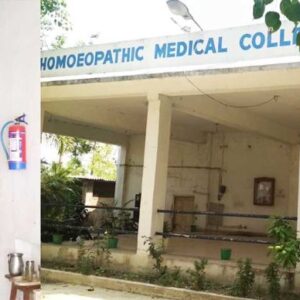Admission in Top Blood Banking Technology Colleges in Bangalore
The field of Blood Banking Technology plays a critical role in the healthcare industry by ensuring the availability of safe and compatible blood for transfusion. It involves the collection, testing, processing, and storage of blood components, as well as the management of blood banks and transfusion services. With the increasing demand for skilled professionals in this domain, Bangalore has emerged as a hub for top-notch colleges offering programs in Blood Banking Technology. These colleges provide comprehensive education and hands-on training, equipping students with the knowledge and skills necessary to excel in this specialised field. In this article, we will explore the admission process and highlight some of the top Blood Banking Technology colleges in Bangalore, where aspiring students can pursue their academic and professional goals.
Some of the top Blood Banking Technology colleges in Bangalore
St. John’s Medical College:
St. John’s Medical College is a prestigious institution known for its exceptional healthcare education. A three-year postgraduate programme in transfusion medicine is offered at St. John’s Department of Transfusion Medicine and Immunohematology. The program focuses on all aspects of blood banking technology, including blood collection, component separation, blood storage, compatibility testing, and immunohematology. Graduates from St. John’s Medical College has excellent career prospects in blood banks, hospitals, research organisations, and diagnostic laboratories.
Manipal College of Allied Health Sciences:
Manipal College of Allied Health Sciences is affiliated with Manipal Academy of Higher Education (MAHE) and offers a Bachelor of Science (B.Sc.) degree in Medical Laboratory Technology with a specialisation in Blood Banking. The program covers various aspects of blood banking technology, including blood grouping, cross-matching, blood component separation, and transfusion techniques. Graduates from this program can find employment opportunities in blood banks, hospitals, diagnostic centres, and research institutions.
Kempegowda Institute of Medical Sciences (KIMS):
Kempegowda Institute of Medical Sciences is a renowned medical institution offering a Bachelor of Science (B.Sc.) degree in Medical Laboratory Technology. The program provides in-depth knowledge and practical training in blood banking technology, including blood donation procedures, blood group determination, compatibility testing, and blood component separation. Graduates from KIMS can pursue careers in blood banks, hospitals, research organisations, and diagnostic laboratories.
Vydehi Institute of Medical Science:
Vydehi Institute of Medical Sciences and Research Centre is a reputed institution offering a Bachelor of Science (B.Sc.) degree in Medical Laboratory Technology. The program offers specialised training in blood banking technology, equipping students with the skills required for blood collection, storage, component separation, and compatibility testing. Graduates from Vydehi Institute can work in blood banks, hospitals, diagnostic laboratories, and research organisations.
Oxford College of Pharmacy:
Oxford College of Pharmacy, affiliated with Rajiv Gandhi University of Health Sciences (RGUHS), offers a Bachelor of Pharmacy (B.Pharm) degree with a specialisation in Clinical Pharmacy. The program includes coursework on blood banking technology, focusing on blood transfusion procedures, immunohematology, and therapeutic drug monitoring. Graduates from Oxford College of Pharmacy can pursue careers as clinical pharmacists in blood banks, hospitals, and healthcare institutions.
In the field of blood banking technology, students study a range of subjects to acquire the necessary skills and knowledge for their future careers. Some of the major study areas:
Blood Collection and Processing: Students learn the techniques for blood collection, including venepuncture and apheresis, as well as the procedures for separating and processing blood components like red blood cells, white blood cells, platelets, and plasma.
Blood Group Serology and Molecular Blood Typing: Students explore different blood group systems, such as the ABO and Rh systems, and learn about the antigens, antibodies, and molecular techniques used to determine blood types accurately.
Immunohematology: This subject focuses on the immune system’s interaction with blood components, including the role of antigens, antibodies, and transfusion reactions. Students gain an understanding of conditions like hemolytic disease of the foetus and newborn (HDFN) and their implications for transfusion medicine.
Pathogen Reduction and Blood Safety: Students learn about methods employed to ensure the safety of blood products, such as chemical treatments, ultraviolet light, and filtration techniques. They also study the importance of rigorous screening and testing procedures to minimise the risk of transfusion-transmitted infections.
Transfusion Therapy and Clinical Applications: This subject covers the principles of transfusion therapy and the clinical use of blood products in treating various medical conditions. Students learn about indications, contraindications, potential complications, and appropriate transfusion practices in different clinical scenarios.
Quality Management and Regulations: Students understand the significance of quality management and regulatory compliance in blood banking technology. They explore standards and guidelines established by organisations like the AABB and FDA, focusing on quality control, quality assurance, and the development of standard operating procedures.
In addition to theoretical knowledge, practical training and internships play a crucial role in the blood banking technology curriculum. Students gain hands-on experience in blood banks, hospitals, or other healthcare facilities, where they learn blood collection techniques, processing procedures, compatibility testing, and transfusion practices under supervision.
Scope After Top Blood Banking Technology Colleges in Bangalore
The field of blood banking technology offers promising career prospects for graduates. Professionals in this field play a crucial role in ensuring the safety and availability of blood and blood products for transfusion. Graduates from top blood banking technology colleges in Bangalore can find employment opportunities in various settings, including:
Blood Banks: Graduates can work in blood banks, where they are involved in blood collection, component separation, compatibility testing, and maintaining blood inventory.
Hospitals: Blood banking technologists are employed in hospitals to handle blood transfusions, conduct pre-transfusion testing, and ensure compatibility between donors and recipients.
Diagnostic Laboratories: Graduates can work in diagnostic laboratories, performing blood grouping, cross-matching, and other tests related to blood banking.
Research Organisations: Opportunities exist in research organisations, where professionals contribute to advancements in transfusion medicine, blood-related disorders, and immunohematology.
Pharmaceutical Industry: Graduates with a background in blood banking technology can explore opportunities in the pharmaceutical industry, particularly in departments related to blood products and therapeutic drug monitoring.
By studying these subjects and gaining practical experience, students in blood banking technology programs develop the skills and expertise necessary for careers in blood banks, hospitals, research organisations, diagnostic laboratories, and pharmaceutical companies. They play a vital role in ensuring the availability of safe blood and blood products for transfusions, contributing to patient care and public health.
Overall, pursuing a degree in blood banking technology from top colleges in Bangalore can provide a strong foundation for a rewarding career in the field, with opportunities to contribute to patient care, public health, and advancements in transfusion medicine.




